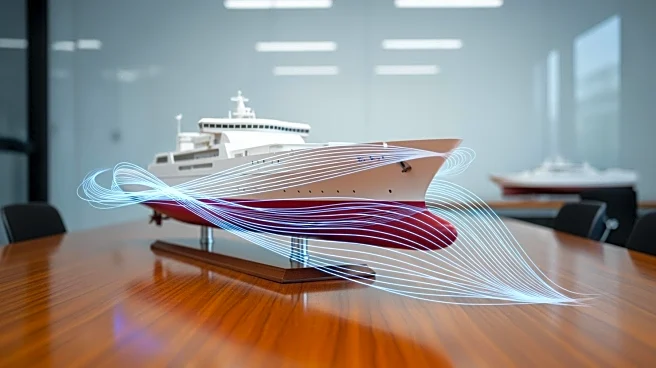What's Happening?
BlueNose, a maritime innovation startup based in London, has received $460,000 from the U.K. Government's Clean Maritime Demonstration Competition to develop aerodynamic efficiency concepts for commercial shipping. The funding supports a seven-month feasibility
study under the Department for Transport's UK SHORE program, delivered by Innovate UK. BlueNose aims to create inflatable and foldable wind-deflector modules to reduce fuel consumption and emissions across the global fleet. The project involves refining algorithms, data analysis, and design strategies using fuel-consumption data from Lomar vessels and European satellite weather datasets. The initiative promises potential fuel savings of up to 5% for large vessels, with significant reductions in particulate matter and other emissions, improving air quality in ports and coastal regions.
Why It's Important?
The BlueNose project represents a significant step towards maritime decarbonization, addressing the industry's need for sustainable practices. By potentially reducing fuel costs by up to $1 million per vessel annually, the project offers economic benefits to operators of large containerships. Additionally, the initiative supports the U.K.'s clean technology sector, potentially increasing demand for materials and composites. Ports may also benefit by becoming hubs for clean-technology retrofit activities. The project's success could encourage further investment in maritime innovation, contributing to global efforts to reduce carbon emissions and improve air quality.
What's Next?
BlueNose plans to conduct a focused feasibility study to test aerodynamic module concepts, refine algorithms, and map out approval pathways with classification societies. The study aims to gather evidence and insights to bring aerodynamic retrofits from concept to reality. The maritime sector, often slow to change, could see accelerated adoption of these technologies with support from collaborators like lomarlabs and Lomar. The project's progress may influence future regulatory frameworks and industry standards for vessel design and emissions reduction.

















